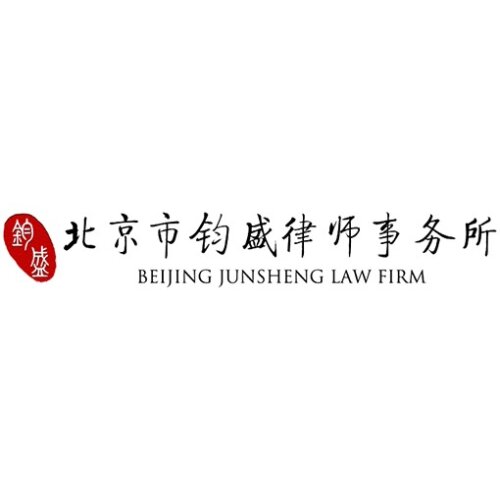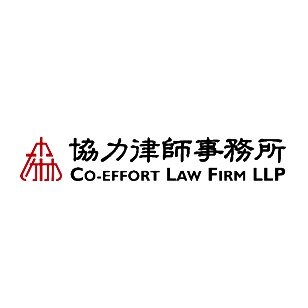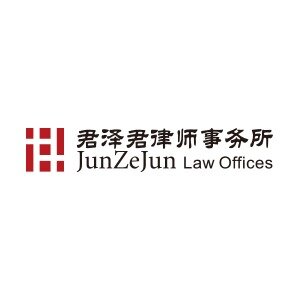Best Intellectual Property Lawyers in China
Share your needs with us, get contacted by law firms.
Free. Takes 2 min.
Or refine your search by selecting a city:
List of the best lawyers in China
China Intellectual Property Legal Articles
Browse our 2 legal articles about Intellectual Property in China written by expert lawyers.
- Protecting IP in China under Foreign-Related Dispute Rules
- China is a strict first-to-file jurisdiction for trademarks and patents, so foreign companies should file core marks and key technologies in China early, ideally before entering the market or starting manufacturing. Core IP statutes include the Trademark Law, Patent Law, Copyright Law, and Anti-Unfair Competition Law, enforced by CNIPA, specialized... Read more →
- China AI Compliance: How to meet new labeling rules for AIGC
- China offers strong but highly formal IP protection: most valuable rights (trademarks, patents, designs) must be registered with Chinese authorities to be enforceable. For AI-generated content, Chinese regulators treat labeling and traceability as a compliance issue, separate from copyright ownership questions. The new "Measures for the Labeling of AI-Generated Content"... Read more →
About Intellectual Property Law in China
Intellectual Property (IP) law in China is designed to protect the creations of individuals and entities, which include inventions, designs, brand names, and artistic works. China's IP framework consists of several key regulations and acts that adhere to international standards, including the Patent Law, Copyright Law, and Trademark Law. Over recent years, China has made significant improvements to strengthen its IP laws and enforcement mechanisms to better protect both domestic and foreign IP rights holders.
Why You May Need a Lawyer
Engaging a lawyer can be crucial in several situations related to Intellectual Property in China. You may need legal assistance when filing patents or trademarks to ensure compliance with local regulations. Legal expertise is also beneficial in enforcing IP rights, such as taking action against infringement. Moreover, if you're involved in licensing agreements or technology transfers, having a lawyer can be vital for negotiating terms and protecting your interests. Finally, IP disputes that arise due to contract breaches, counterfeiting, or piracy often require legal resolution.
Local Laws Overview
The Chinese legal system provides a comprehensive framework for Intellectual Property protection:
- Patent Law: Covers inventions, utility models, and industrial designs. It establishes the criteria and procedures for patent applications and grants.
- Trademark Law: Protects symbols, names, and slogans used in trade. China operates on a first-to-file basis, meaning that trademark registration should be a priority.
- Copyright Law: Encompasses an array of creative works, including literature, music, and software. It grants exclusive rights to creators for use and distribution.
- Anti-Unfair Competition Law: Addresses trade secrets and unlawful exploitation of business reputation.
- Customs Protection: Allows for the recording of IP rights with Chinese Customs to prevent the import/export of infringing goods.
Frequently Asked Questions
What is the first step in protecting my IP in China?
The first step is often filing for registration of your IP, such as patents, trademarks, or copyrights, with the appropriate Chinese authorities to secure legal recognition and protection.
How can I enforce my IP rights if someone infringes them in China?
You can pursue legal action by filing an infringement lawsuit in a Chinese court or administrative action with local IP authorities. Enforcement may involve civil remedies, administrative penalties, and in some cases, criminal prosecution.
Is my foreign-registered trademark protected in China?
No, China does not automatically recognize foreign IP rights. You will need to register your trademark with the China National Intellectual Property Administration (CNIPA).
What is the duration of patent protection in China?
A standard patent in China is valid for 20 years from the date of filing, whereas utility models and designs are protected for 10 years.
Can copyright be registered in China, and is it necessary?
Copyright protection is automatic upon creation, but registering your copyright with the China Copyright Protection Center can provide advantages in enforcement and disputes.
How are trade secrets protected under Chinese law?
Trade secrets are protected under the Anti-Unfair Competition Law, which requires businesses to adopt reasonable measures to maintain their confidentiality.
What are the legal consequences of IP infringement in China?
Consequences range from monetary damages and injunctions to administrative penalties and potential criminal charges, depending on the severity and nature of the infringement.
How is IP affected in joint ventures with Chinese companies?
Joint ventures often raise complex IP considerations. It's advisable to include clear terms about IP ownership, use, and protection in contractual agreements.
Can licenses for IP be transferred or sold in China?
Yes, IP licenses can be transferred or sold. However, such transactions must comply with relevant regulations and registration with local authorities may be required.
What should I do if my product is counterfeit in China?
Contact a local IP attorney to help you lodge a complaint with both local IP administrative authorities and customs to take action against counterfeit goods.
Additional Resources
Several resources are available to assist with IP matters in China:
- China National Intellectual Property Administration (CNIPA): The main body for IP registration and protection.
- China Trademark Office: Handles trademark registration and enforcement.
- State Administration for Market Regulation (SAMR): Oversees anti-unfair competition and IP enforcement.
- China Copyright Protection Center: Provides copyright registration services.
- Local law firms: Many international and Chinese firms specialize in IP law and can offer comprehensive legal advice and representation.
- International organizations: Bodies like WIPO and international chambers of commerce often provide useful guides and support for foreign businesses.
Next Steps
If you require legal assistance in Intellectual Property in China, consider the following steps:
- Identify Your Needs: Clearly define the specific IP assistance you need, whether it’s registration, enforcement, or dispute resolution.
- Consult a Qualified IP Lawyer: Hire a lawyer experienced in Chinese IP law to guide you through the complexities of the legal process. They can offer tailored advice and representation.
- Gather Documentation: Ensure you have all necessary documents, such as proofs of IP ownership, contracts, or evidence of infringement, ready for legal assessment.
- Consider Registration: If not already done, proceed with registering your IP with relevant Chinese authorities to ensure protection.
- Know Your Rights: Familiarize yourself with your rights under Chinese law to better negotiate and protect your interests.
Lawzana helps you find the best lawyers and law firms in China through a curated and pre-screened list of qualified legal professionals. Our platform offers rankings and detailed profiles of attorneys and law firms, allowing you to compare based on practice areas, including Intellectual Property, experience, and client feedback.
Each profile includes a description of the firm's areas of practice, client reviews, team members and partners, year of establishment, spoken languages, office locations, contact information, social media presence, and any published articles or resources. Most firms on our platform speak English and are experienced in both local and international legal matters.
Get a quote from top-rated law firms in China — quickly, securely, and without unnecessary hassle.
Disclaimer:
The information provided on this page is for general informational purposes only and does not constitute legal advice. While we strive to ensure the accuracy and relevance of the content, legal information may change over time, and interpretations of the law can vary. You should always consult with a qualified legal professional for advice specific to your situation.
We disclaim all liability for actions taken or not taken based on the content of this page. If you believe any information is incorrect or outdated, please contact us, and we will review and update it where appropriate.
Browse intellectual property law firms by service in China
China Attorneys in related practice areas.
Browse intellectual property law firms by city in China
Refine your search by selecting a city.

















